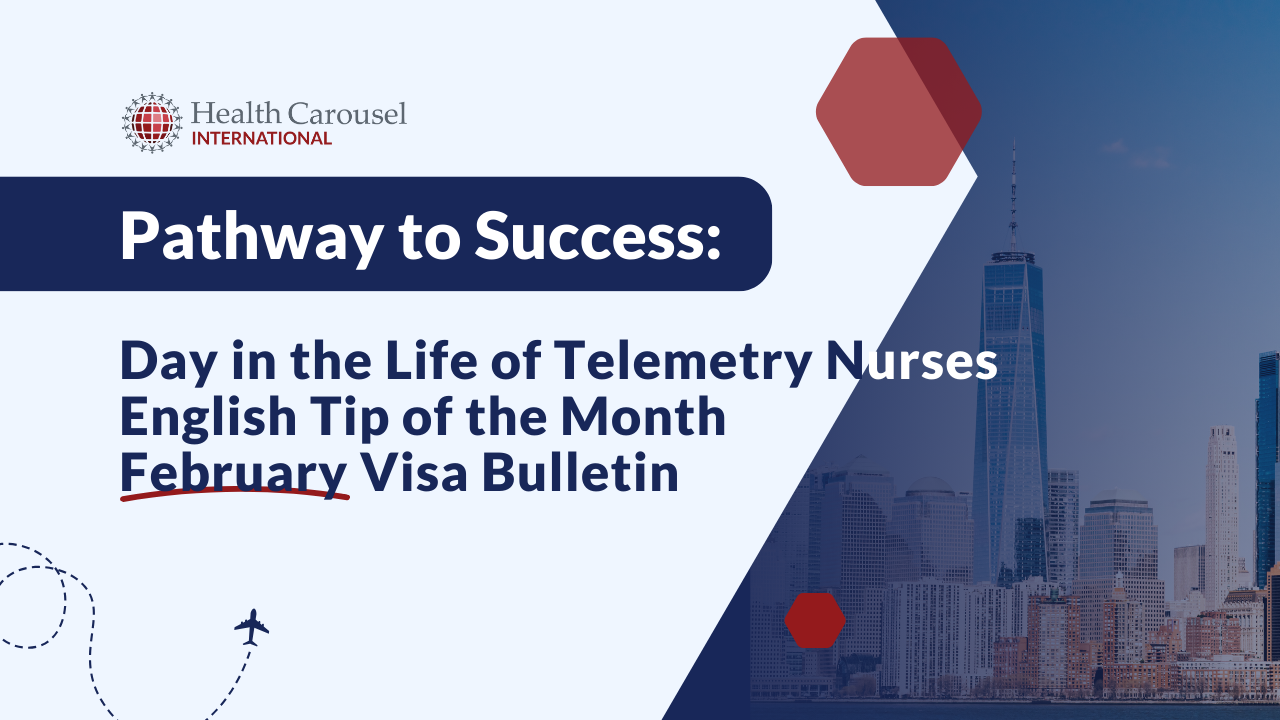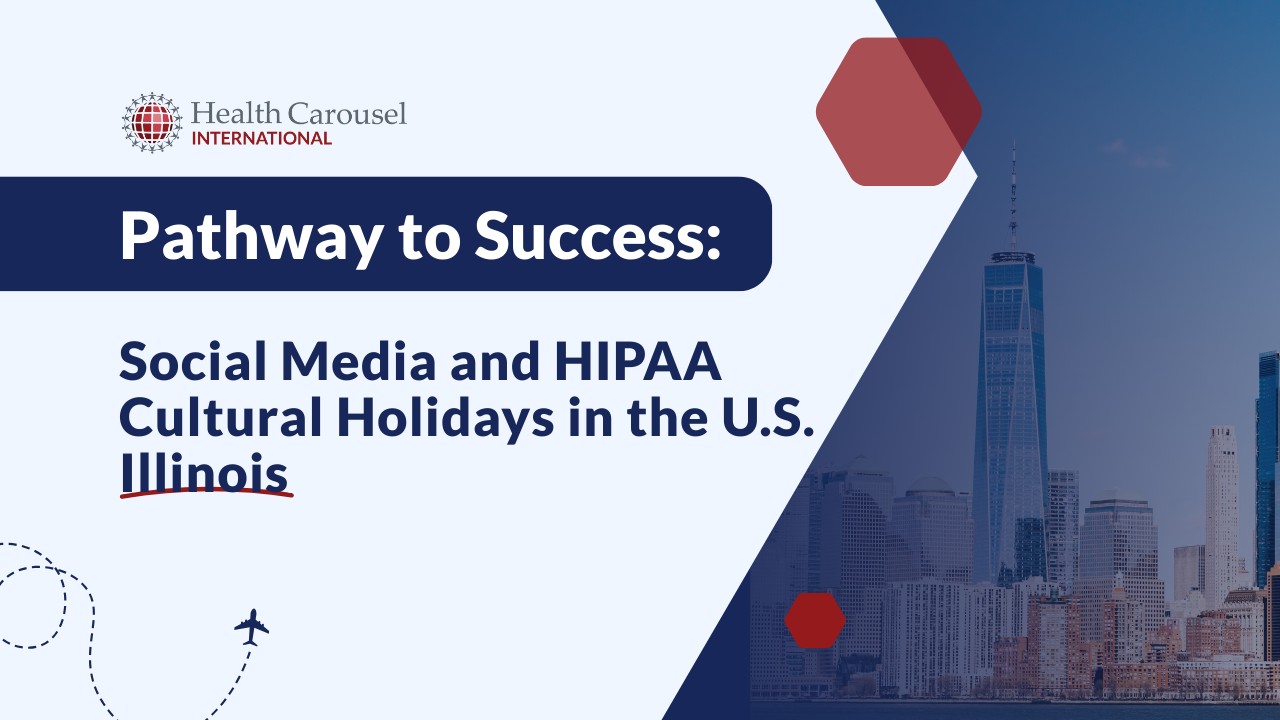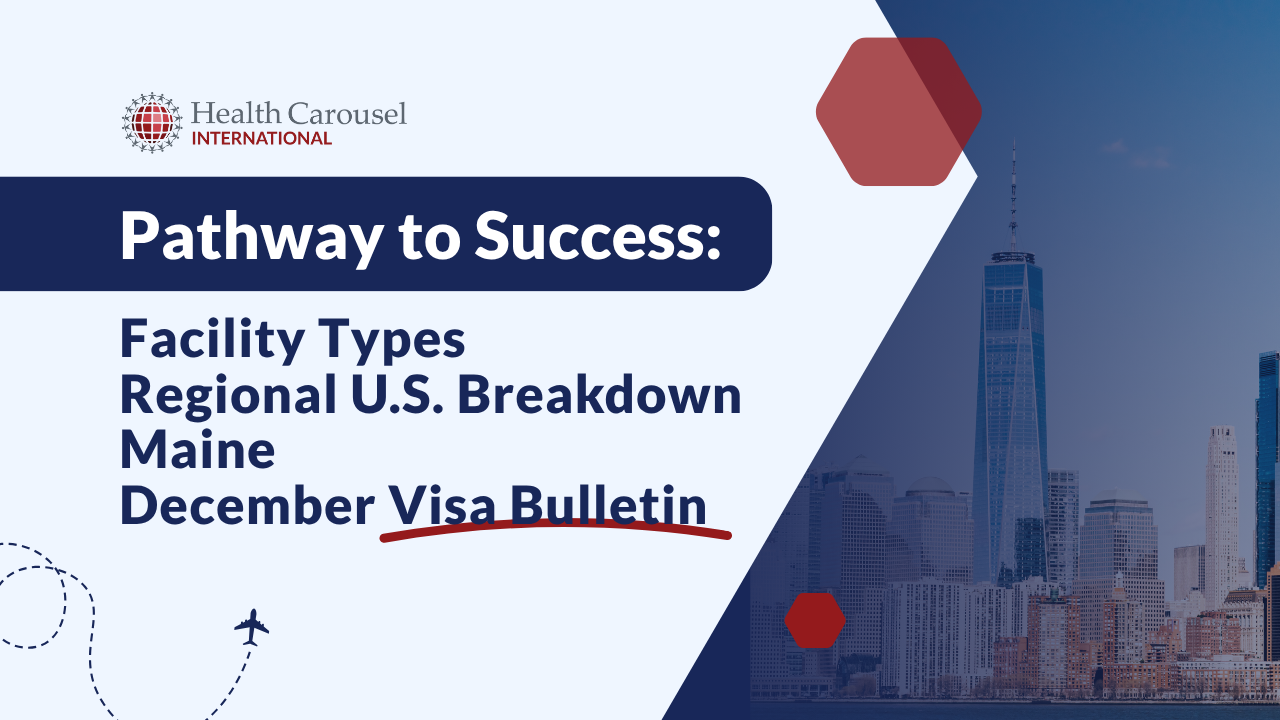What International Nurses Should Know Before Relocating to the U.S.: Key Insights on Transportation, Communication, and Lifestyle
June 27, 2025

At Health Carousel International, we believe that the journey of every international healthcare professional does not stop upon arrival in the United States—it only begins. In our July 2025 live broadcast, a panel of experts across departments shared in-depth insights on immigration, licensure, career advancement, relocation guidance, and the unique opportunities available through our program. This blog summarizes key discussions to help both prospective and current nurses understand the full circle of support designed to help them thrive.
Watch the broadcast below to hear the full discussion, or keep reading for the main highlights.
What International Nurses Should Know About Relocating to the U.S.: Transportation, Communication, and Where You Might Live
As an international nurse preparing for your career in the United States (U.S.), planning ahead is key to a smooth transition. In our June 2025 broadcast, Health Carousel International shared essential insights on what to expect after you relocate—from transportation and professional communication to exploring locations in the U.S. like South Dakota. Whether you're just starting the process or actively preparing to arrive, this recap will help you feel more informed and supported in your life and career.
Full Support for Every Stage of Your Journey
The broadcast began by highlighting our full circle of support for nurses in the PassportUSA program. From visa sponsorship and relocation guidance to coaching and advanced education opportunities, our program is designed to support you before you arrive and long after you begin working in the U.S.
If you're looking for a program that offers not just job placement but long-term support, we're here to help.
Apply now to join our program.
Transportation in the U.S.: What You Need to Plan For
Transportation in the U.S. is not as universal or predictable as in some countries. Nick Butcher from the International Employee Supervisor (IES) team explained the wide variation between locations and why having a transportation plan before arrival is critical.
Some of the key points Butcher noted are:
- Public transportation is limited in many areas outside of major cities.
- Car ownership is often the most reliable option for commuting and daily life.
- We offer guidance on vehicle financing through International AutoSource (IAS) or Advancial Credit Union.
- Nurses will need a U.S. driver's license; requirements vary by state.
- Child safety laws require car seats for children under eight—even when using ride-sharing services.
Owning a car involves cost and responsibility, but in many U.S. locations, it’s necessary for managing daily routines and shift schedules.
Learn more about our program and how we help nurses navigate transportation planning.
Communication in the U.S. Workplace: What Nurses Need to Know
Effective communication is essential in U.S. clinical settings. Ashten Johnson and Bradley Williams from the Quality Improvement and Nursing (QIN) team discussed how communication impacts patient safety, collaboration, and even hospital performance ratings.
They covered:
- Nurse-to-nurse and nurse-to-physician communication best practices
- How to use the Situation-Background-Assessment-Recommendation (SBAR) method to communicate clearly with doctors
- Cultural adjustments and understanding nonverbal cues
- The impact of Hospital Consumer Assessment of Healthcare Providers and Systems (HCAHPS) surveys on hospital reimbursements
- Why active listening and professionalism matter in all interactions
Communication may work differently in your home country, but we provide training and simulation modules to help you adjust. Our team ensures you’re equipped to communicate confidently and professionally in your new workplace.
Location Spotlight: South Dakota
Gretchen Fischer from the Account Management (AM) team introduced South Dakota as a potential work and living destination for nurses. It's an underrated state with major benefits:
- Low cost of living (92 on the index scale, well below New York or California)
- Rich recreational opportunities—state parks, hiking, fishing, and more
- Unique cultural sites like Mount Rushmore and Badlands National Park
- Diverse seasonal weather and temperate climate
- Family-friendly communities and a slower pace of life
South Dakota provides a balance of lifestyle, affordability, and natural charm—making it a location worth considering for your U.S. nursing career.
Explore South Dakota further: Explore South Dakota
Use This Time Wisely
If you’re still waiting for your visa or priority date to become current, this is the time to prepare. Study for your English exams, organize your documents, and begin researching your future location. Use available resources like the Visa Bulletin and Visa Reciprocity websites to stay informed.
Our full circle of support includes immigration assistance, relocation prep, and even work-study programs that help you advance your career while working in the U.S.
Related Articles

Nursing in the USA
What It’s Like to Be a Telemetry Nurse in the US and Visa Updates: January 2026 Broadcast Recap
January 29, 2026
Read More

Nursing in the USA
December 2025 Broadcast Recap: US Holidays, Social Media Tips & Life in Illinois
December 18, 2025
Read More

Nursing in the USA
What Nurses Need to Know: November 2025 Broadcast Highlights & Visa Bulletin
November 25, 2025
Read More
Start Your US Nursing Career
Turn your dreams into reality by taking the first step today. Apply to the PassportUSA program to connect with a recruiter.
.webp)
.webp)